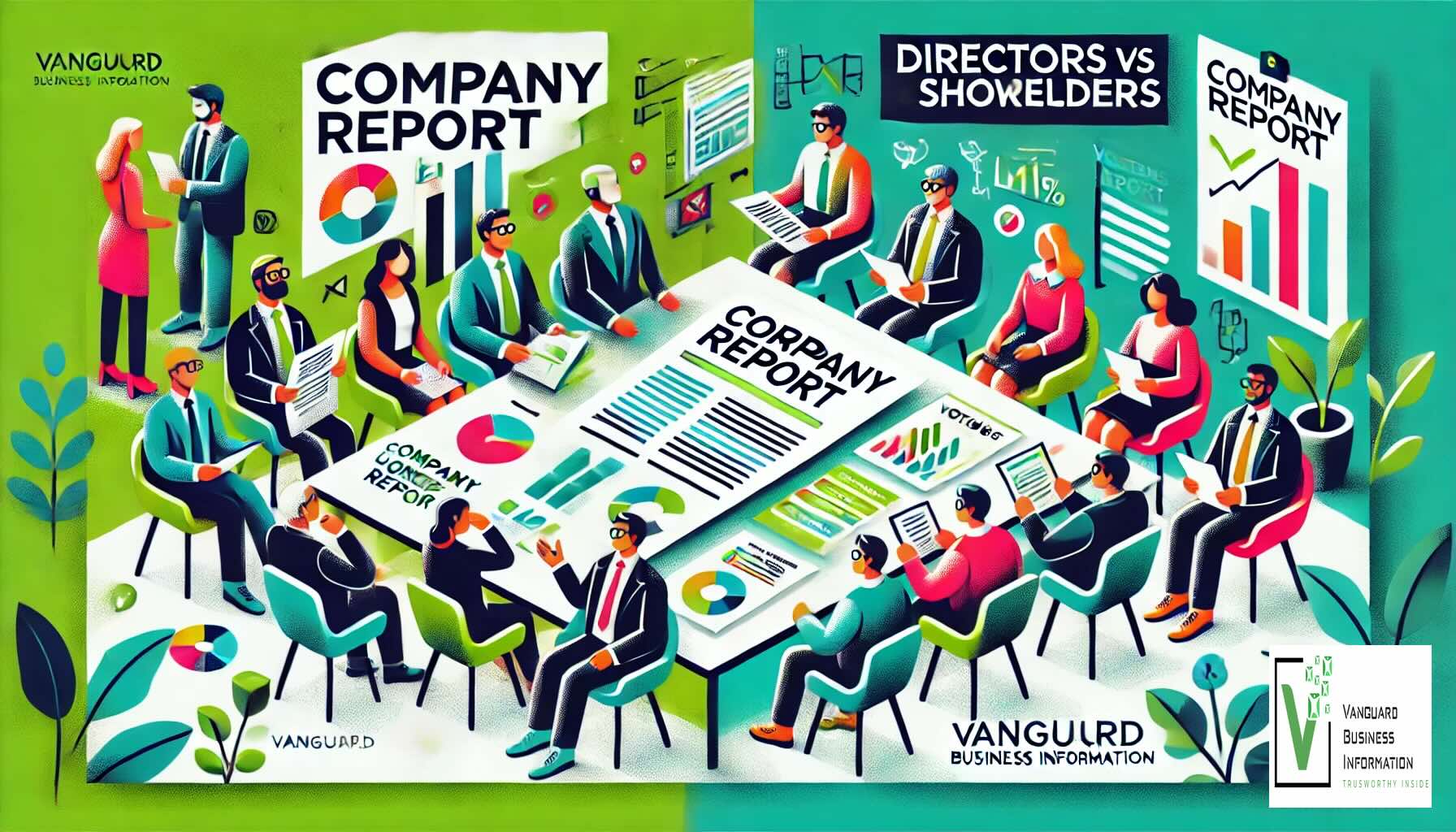Published Dec 2024
Who is more important in a Company: Directors or Shareholders?
This article explores the roles of directors and shareholders in a company, with a particular focus on Vietnam's unique business landscape. It also highlights how tools like Vanguard Business Information’s Company Report can help uncover the real power behind an enterprise.

Who is more important in a Company: Directors or Shareholders?
In the corporate world, determining whether directors or shareholders hold more importance is a nuanced debate. Directors are the visible leaders managing daily operations and strategic execution, while shareholders are the ultimate owners with a financial stake and voting rights. The interplay between these roles can be complex, especially in countries like Vietnam, where corporate structures and governance often blur traditional lines of responsibility.
This article explores the roles of directors and shareholders in a company, with a particular focus on Vietnam's unique business landscape. It also highlights how tools like Vanguard Business Information’s Company Report can help uncover the real power behind an enterprise.
The Role of Directors and the Influence of Shareholders
Directors: The Executives Steering the Ship
Directors are pivotal to a company’s success. They are responsible for shaping strategies, ensuring operational efficiency, and maintaining compliance with laws and regulations. Acting as fiduciaries, they are tasked with making decisions in the best interests of stakeholders, including shareholders, employees, and customers.
In Vietnam, directors often double as legal representatives, authorized to sign contracts and represent the company in official matters. However, their actual autonomy can vary significantly. Many directors are appointed by shareholders and function more as executors of shareholder directives rather than independent decision-makers.
Shareholders: The Ultimate Owners
Shareholders, as owners of the company, provide the capital needed to fund operations. In return, they expect profits, dividends, and a say in strategic decisions. Their influence is exercised primarily through voting rights at general meetings, where critical decisions such as electing directors, approving mergers, or amending bylaws are made.
However, in Vietnam, shareholders often prefer to remain in the background. Many delegate authority to directors or legal representatives to avoid scrutiny, manage risks, or maintain privacy. This practice adds a layer of opacity to corporate governance, making it difficult to discern who truly wields power in a company based on public records alone.
Vietnam’s Business Landscape: A Complex Interplay
In Vietnam, the relationship between directors and shareholders is uniquely intricate. Shareholders frequently appoint family members, close friends, or even unrelated individuals to act as directors or legal representatives. In extreme cases, these appointees might include individuals with little to no business experience, such as household helpers or chauffeurs, serving as nominal figureheads.
This practice often obscures the true hierarchy within a company. While the official records may list a director as the legal representative, the real decision-making power might lie with an unnamed shareholder. This complexity poses challenges for investors, partners, or competitors attempting to assess a company’s governance and risk profile.
For example, a company might frequently change its legal representative, a pattern that could indicate shareholder conflicts or an attempt to conceal the true ownership structure. Such dynamics can undermine trust and complicate business dealings.
Bridging the Gap: Vietnam Business Information’s Company Report
Given the opacity in Vietnam’s corporate landscape, relying solely on business registration certificates or publicly available data can lead to incomplete or misleading conclusions. This is where Vietnam Business Information’s Company Report becomes an invaluable resource.
Key Features of the Company Report
- Identifying True Shareholders
The report goes beyond superficial titles, providing a detailed breakdown of shareholders, including ownership percentages and, in some cases, their affiliations and backgrounds. This clarity is crucial for understanding who holds actual control. - Mapping Decision-Making Authority
By analyzing historical data, such as changes in charter capital and shifts in legal representatives, the report uncovers patterns that indicate who genuinely makes decisions within the company. - Enhancing Transparency
The report provides insights into the relationships between directors, shareholders, and other key personnel, offering a holistic view of the company’s governance structure. - Mitigating Risks in Business Transactions
For investors, partners, or potential acquirers, understanding the true power structure of a company is essential. The Company Report helps identify hidden risks and ensures accountability, enabling better-informed decisions.
Case Study: Uncovering the Real Power in a Vietnamese Company
Consider a foreign investor evaluating a partnership with a Vietnamese enterprise. The company’s public records list a local entrepreneur as its director and legal representative. However, the investor suspects that the real decision-maker is a silent shareholder, possibly a foreign entity.
Using Vanguard Business Information’s Company Report, the investor uncovers significant changes in the company’s charter capital and repeated shifts in its legal representatives, all tied to a specific shareholder. These findings reveal the hidden dynamics within the company, equipping the investor with critical insights to navigate the partnership.
Why Understanding the Power Structure Matters
In any business relationship—be it as an investor, partner, or competitor—knowing who holds power within a company is vital. While directors often serve as the visible representatives, shareholders frequently exert substantial influence behind the scenes, particularly in Vietnam’s unique corporate environment.
Vanguard Business Information’s Company Report addresses this knowledge gap by providing a comprehensive and transparent view of a company’s hierarchy. This tool is not just a luxury, it is a necessity for navigating Vietnam’s complex business landscape with confidence.
Directors vs. Shareholders: Who is More Important?
The question of whether directors or shareholders are more important depends on the specific context:
- Operational Perspective: Directors are crucial for executing strategies, managing operations, and ensuring compliance. Their day-to-day contributions directly impact the company’s performance.
- Ownership Perspective: Shareholders hold the ultimate power as owners. Their influence, exercised through voting and capital investment, shapes the company’s strategic direction and governance.
In Vietnam, the distinction is further blurred by the practice of appointing figurehead directors, making shareholders the de facto decision-makers in many cases. Thus, the answer lies in understanding the dynamics within the organization and the broader cultural and legal context.
Conclusion
Directors and shareholders each play vital roles in a company's success, but their importance varies depending on perspective and context. In Vietnam, where corporate governance often involves hidden layers of influence, understanding these roles becomes even more critical.
Vanguard Business Information’s Company Report provides the transparency needed to decipher the true power structure within a company. By identifying real stakeholders and offering a detailed analysis of corporate dynamics, the report empowers businesses to confidently make strategic decisions.
In an increasingly competitive and interconnected world, transparency is no longer optional—it is a cornerstone of successful business practices. With tools like the Company Report, navigating Vietnam’s unique corporate landscape becomes a precise and informed process.
Henry Chan – Vanguard Business Information















